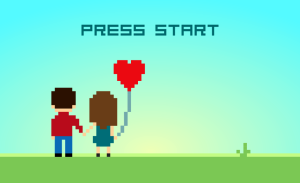
Because if you wait too long, it’s game over
The average person wanders around 28.000 days on this beloved earth of ours before (possibly) going to some place else. So the question is: how close to this number are you? Are you in the second half of your 28.000, or did you just pass a quarter of it? If you are in your early twenties – like myself – you are likely to be a couple of hundred days short of reaching the ‘amazing’ milestone of 10.000 days. But that’s quite close to the 28.000 already, right? It’s not like we just started. And if I would ask you to look back upon those thousands of days that you can call ‘my life‘, then what is it that you truly remember about them? And more importantly: what is it that you want to remember about – let’s say – the upcoming 10.000 days? That’s the truly interesting question, because this question – in contrast the former – doesn’t have a definite answer yet: it’s yours to fill in.
Let’s take a look at how our lives have been up till now, shall we? Let’s start with the first 1.200 days. Well, these are just one big blur: so let’s skip this part of our journey and move on. What about the next – let’s say – 3.500 days of our lives? These are likely to be filled with all sorts of happy memories, right? This is the period of your life about which – looking back – you’re not sure whether it all actually happened, because part of it could have been a dream.
Now we have come to the period between the age of 3.500 and 6.500 days old. This is likely to be the period in which you have experienced your personal ‘traumas’; those negative experiences you have tried – or are still trying – to eliminate in the subsequent part(s) of your life. Because think about it: most of the insecurities people have appear to have come about within this period of their lives. Ideas such that they are not smart enough, that they are ugly, that they don’t have any friends etc.
But that’s the past: let’s look at the future! After all, we – or at least I – hope to have another 20.000 days ahead of me. But is that really true? Do people in their early twenties truly still have 20.000 days of living ahead of them? The number of days that we are fully alive – in the most vital sense of the word – is likely to be less, right? That is: in the last five years or so of our lives, we are likely to be not so happy anymore. We will get ill, we will see our friends dying and we will come to realize that our own finishing line is getting closer and closer. That means that – reduced for inflation – the number of real days of living still ahead of us lies around 18.000.
But let’s be honest: from our mid-forties to our mid-sixties, we are really just continuing whatever kind of life we started before, right? And what is life when you are not creating anymore, when you are not truly struggling with what to do with your life anymore, when you have come to terms with the monotonous life you are living? Then you are just dead, right? You are nothing but a walking zombie. And what about the age between 35 and 45? Those aren’t very exciting years either, are they? I mean: do you think that you can still meet your future partner after you have passed the age of 35? Or become a parent for that matter? Nah, don’t think so. So those years don’t really count either.
So: what do we have left? We have restricted our ‘true lives’ to the period of between approximately the age of 20 and 25. That is the age in which we truly decide what to do with our lives. The remainder of our lives is just a tasteless sequel. But wait: 20-25? That’s how old I am! Shit: I better start doing something!
Let me ask you: what is wrong with the line of reasoning as pictured above? Let me give you a hint: it is everything except for the last sentence. After all: is it really true that we will be unable to find a partner after we have reached the age of 35? And is it really true that we cannot – in any fundamental sense – change our lives anymore after we have reached the age of 25? And who says we will live for 28.000 days? It is just an average. We might reach the 35.000 or we might die tomorrow. That is for the biggest part completely beyond our control.
So, and here comes the moral of the story, instead of making the limiting and paralyzing projections about life as the figure in this story did, maybe we should just start doing what we believe we should be doing right now. No long-term planning, no thinking about what our lives might be like when we’re re 40; just doing what we find interesting and worthwhile to do right now. Because: how can you plan your life if you don’t know how long you’ve got to plan for?
But what do you think?


